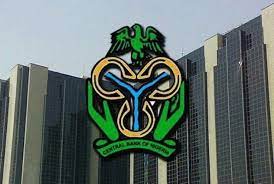News
State govts open security vote accounts with CBN

Governors will henceforth draw their security votes from the Central Bank of Nigeria (CBN).
The development followed the agreement reached earlier in the year between the 36 governors and the Nigerian Financial Intelligence Unit (NFIU).
With the agreement, the governments in the states were mandated to open dedicated accounts for their governors’ security votes with the apex bank.
The opening of such accounts will enable the NFIU to monitor cash withdrawals for security purposes by the governors.
Prior to the NFIU January 5, 2023 directive, banning cash withdrawals from public accounts, governors were getting their security votes from the monthly subventions from Federal Accounts Allocation Committees (FAAC).
But, the states were forced to steer away from commercial bank channels by the NFIU.
A source at the NFIU told The Nation: “Under this arrangement, states governments have established accounts with the CBN specifically designated for their security votes.
“The rationale behind this decision, the NFIU official said is to facilitate fast and easy access to funds during security exigencies.”
State authorities have argued that denying them access to cash from their security votes in times of crises could hold them unduly accountable for any security lapses within their jurisdictions.
The consensus among state governments has led to compliance with the directives against cash withdrawals, aligning with the Federal Government’s preference for non-cash dealings.
However, challenges persist, primarily rooted in certain state governments’ insistence on retaining cash reserves to tackle pressing security issues. Despite this, the NFIU will ensure oversight and monitoring mechanisms are in place for these funds.
Addressing concerns over the withholding of cash palliative meant to cushion the impact of subsidy removal, the NFIU official emphasized that investigating such actions falls within the purview of the Economic and Financial Crimes Commission (EFCC) and the Independent Corrupt Practices and Other Related Offences Commission (ICPC).
The high-ranking NFIU official, who spoke on the condition of anonymity, highlighted the protocol for initiating investigations into such cases, noting that the EFCC or ICPC would need to request pertinent details from the NFIU before any probe commences.
Amid mounting concerns from Nigerians, regarding alleged withholding of cash palliatives, the NFIU’s recent statement has underscored the critical need for transparency and accountability in managing public funds.
In January, the NFIU imposed a ban on cash withdrawals from all public accounts held in banks across federation, state, and local government levels.
The decision was prompted by the alarming rate at which cash was being withdrawn from these accounts, often in contravention of anti-money laundering laws and for potentially corrupt purposes.
From 2015, until the imposition of the ban in January, state governments withdrew approximately N701 billion from their respective accounts.
The Federal Government bodies and local government council authorities respectively withdrew N225 billion and over N156 billion in cash, during the same period.
The federal government granted state governments a grace period, till April 15, 2023, to withdraw cash for security votes only.
The NFIU granted the extension to the state governments after intense negotiations.
Minister of Finance and Coordinating Minister for the Economy Mr. Wale Edun said the source of the cash palliative fund is “a blend of grant to and borrowing by the state governments”.
The minister said: “On the issue of the N5 billion, it’s a combination of grant from the federal government and borrowing by the states. Though the sum of N5 billion is the amount, you will agree with me that to release such fund at once across all the states will be self-defeating because it could lead to an inflationary spiral, exchange rate changing.
“So, it is two billion naira that has been released as an initial intervention and the FCT will be included” he said..”
Since the cash was released in August, many state governors have remained silent on what they have done with the money.
Osun State Governor Ademola Adeleke admitted that he had not spend anything out of the money, despite the urgent need to alleviate the sufferings of the people because of the pain of petrol subsidy withdrawal.
